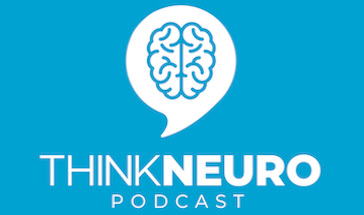
UFC Fighter’s Brain Injury Successfully Treated with Psychedelic Therapy
by Brianna Rauchman
Discover the transformative power of psychedelics for treating traumatic brain injuries (TBI) and mental health conditions. Witness former UFC fighter Ian McCall’s inspiring recovery using psilocybin. Join the conversation on revolutionizing mental health treatment with Daniel F. Kelly, MD, CEO of Pacific Neuroscience Institute (PNI) and board-certified neurosurgeon.
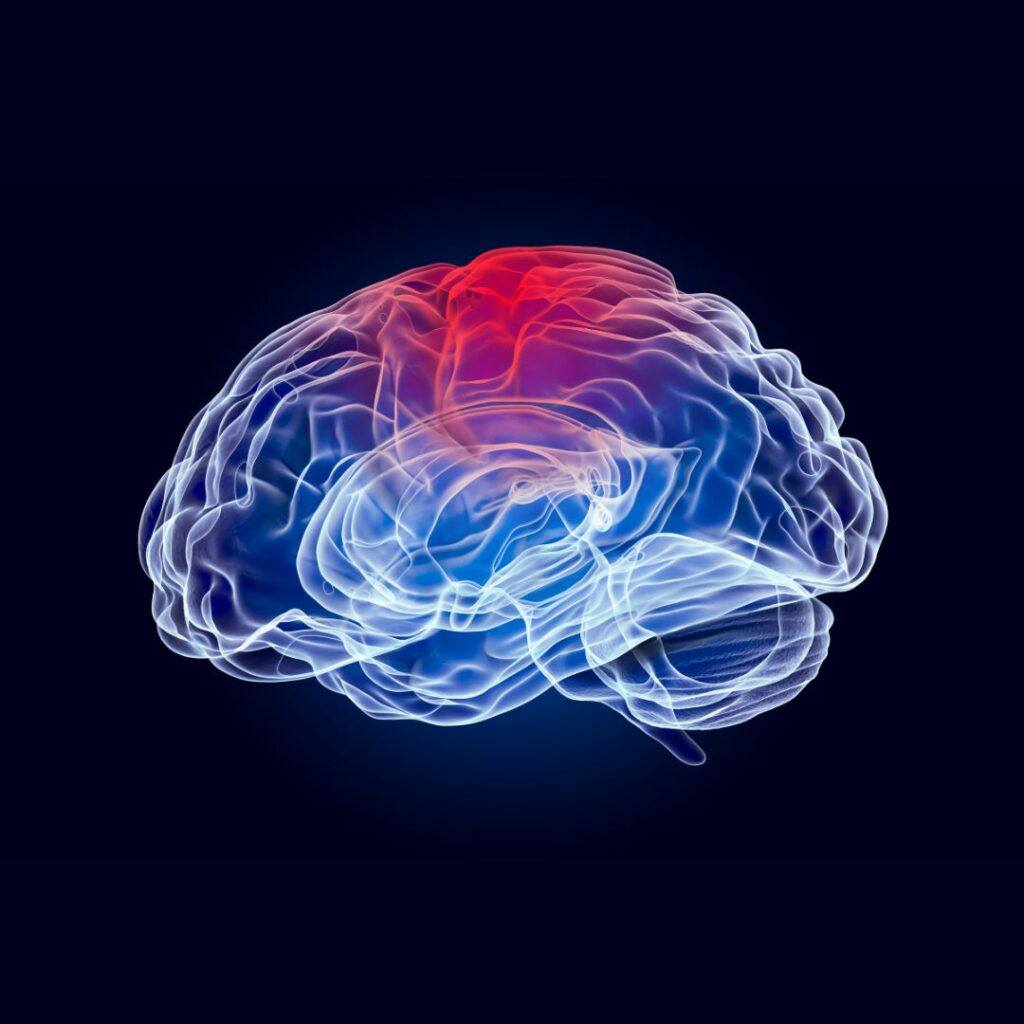
In the world of contact sports, the physical toll on athletes is undeniable. Recent studies have shown a concerning link between head injuries and a fatal brain disease called chronic traumatic encephalopathy (CTE). This disease has affected numerous former NFL players and also raises concerns among hockey players and fighters.
However, amidst the troubling news, there is a glimmer of hope emerging from an unexpected source: psychedelic medicine. Discover the transformative power of psychedelics through the healing journey of former professional UFC fighter, Ian McCall. Plus, learn the benefits of psychedelics for individuals suffering from TBI, mental health conditions, and addiction.
The Devastating Impact of TBI in Athletes
According to researchers at Boston University, former NFL players have shown a high prevalence of CTE, a brain disease caused by repeated head injuries. Furthermore, hockey players may face a 20% increase in the risk of developing this disease for every year they participate in the sport. MMA fighters, who experience violent hits to the head, suffer from TBIs in approximately one-third of UFC fights.
UFC Fighter Ian McCall’s Journey With TBI, Mental Health, and Addiction

Ian McCall, a former professional MMA fighter who competed in the UFC, endured grueling head trauma during his 16-year career. Reflecting on his experiences, Ian shares how fighting impacted his mental health, leading to addiction, confusion, and suicidal ideation. After retiring from the UFC, Ian sought alternative forms of healing to overcome the lingering effects of his injuries.
Ian turned to psilocybin, the active compound in “magic mushrooms”, as a less conventional form of therapy. These naturally occurring psychedelics can alter perception, leading to introspection, and potentially aiding in the healing process. The effects of psilocybin and other psychedelics are non-addictive and have even been used to break addiction patterns.
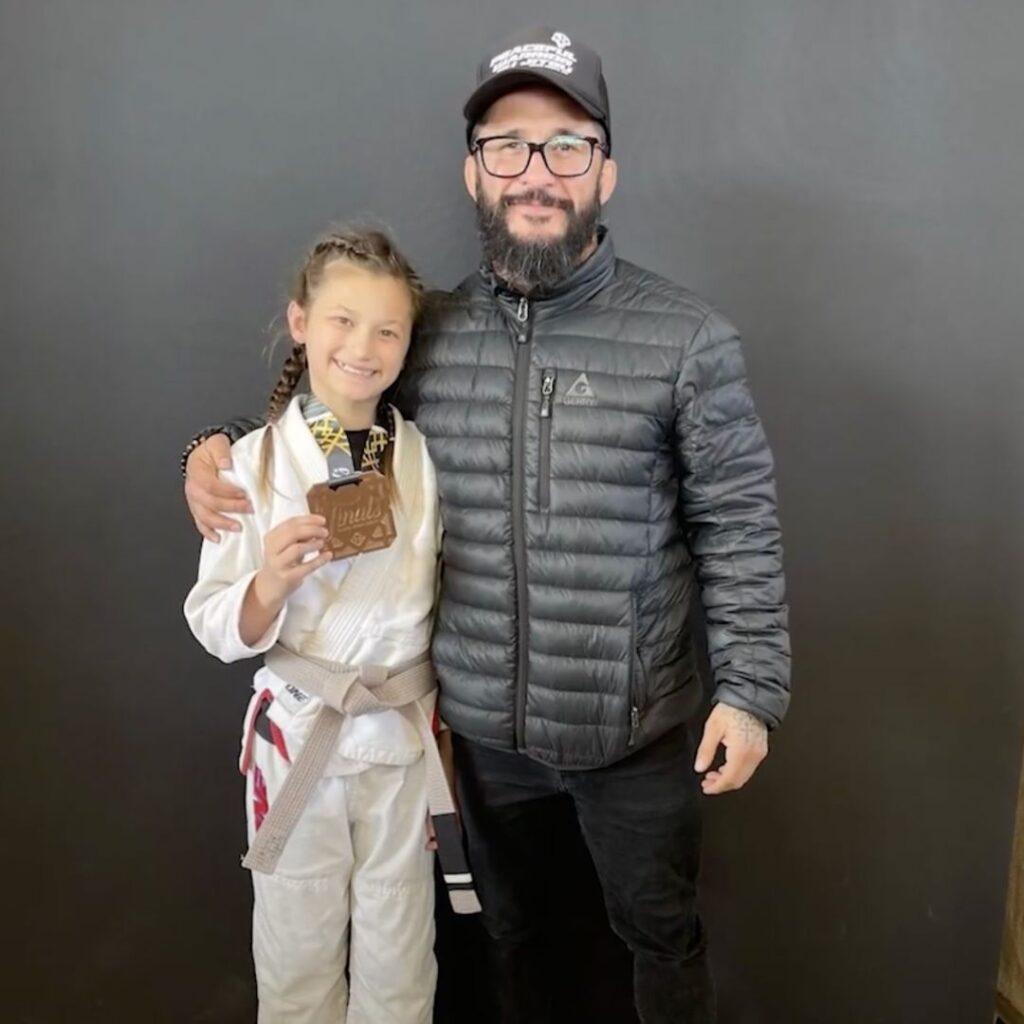
Ian’s journey led him to connect with Shane Norte, a Native American spiritual healer from the La Jolla Indian Reservation. Norte leads psychedelic ceremonies, utilizing the power of psilocybin mushrooms to facilitate healing and spiritual growth. Participants share their traumas and intentions while experiencing the profound effects of the mushroom’s journey. The American Indian Religious Freedom Act protects the use of psychedelics in these ceremonies.
Ian’s healing journey with psychedelics allowed him to transform his life. He now takes regulated micro-doses of psilocybin to experience subtle cognitive and emotional benefits. Additionally, he coaches Muay Thai and Jiu-Jitsu, and cherishes time spent with his children. Ian’s story serves as an inspiration, demonstrating that healing is possible even after the darkest moments. Watch Ian’s inspiring journey.
The Science Behind Psychedelic Therapy
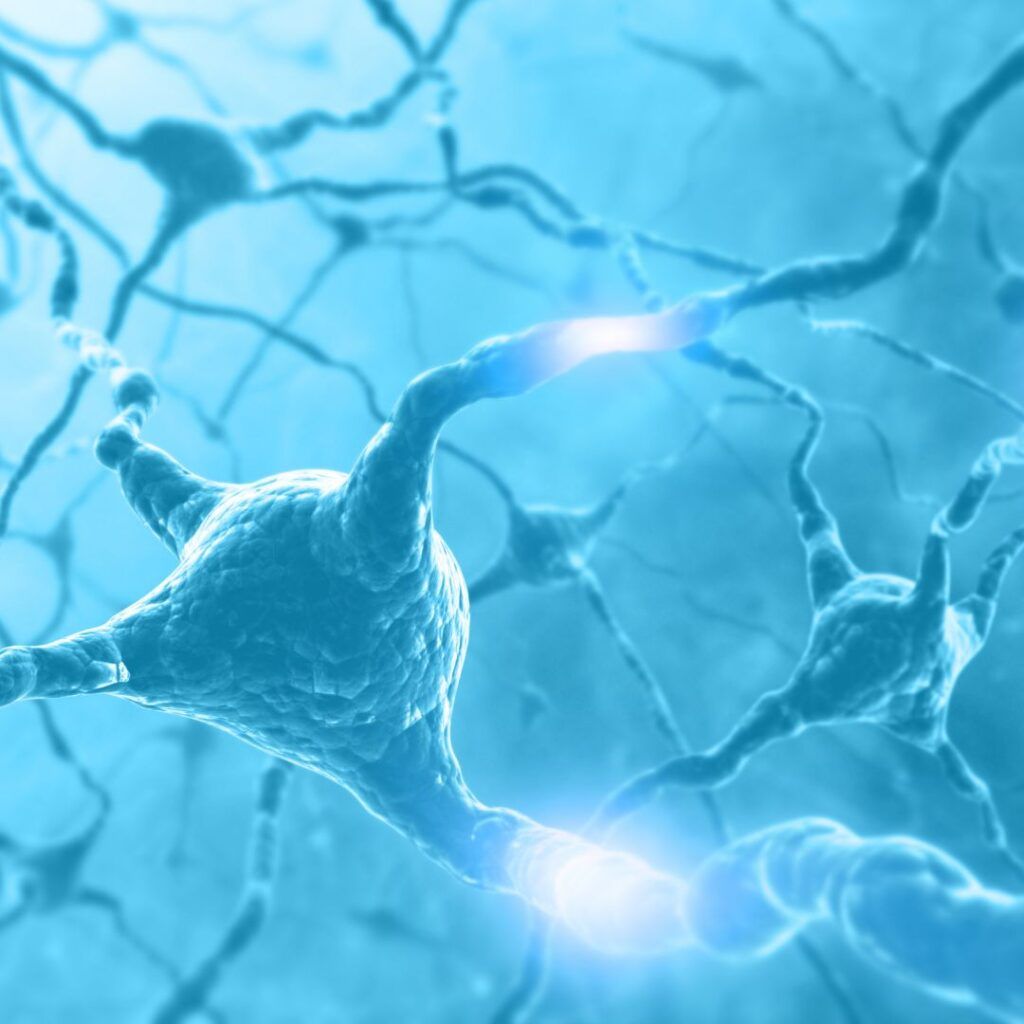
How did psychedelic therapy treat Ian’s TBI-related mental health symptoms? Daniel F. Kelly, MD, CEO of Pacific Neuroscience Institute and board-certified neurosurgeon, explains how substances like psilocybin and LSD can create new connections in the brain, providing individuals with alternative perspectives on their challenges. Dr. Kelly elucidates how shutting down of the ego (or “default mode”) network allows for breakthroughs in mental and emotional healing, addressing the core issues that contribute to conditions such as depression and addiction.
Psychedelic Therapy Available at Pacific Neuroscience Institute (PNI)
Considering the potential advantages of psychedelic therapy, Dr. Kelly initiated PNI’s Treatment & Research in Psychedelics (TRIP) program. TRIP offers ketamine-assisted therapy and conducts psychedelic-assisted clinical trials with different psychedelic medicines. Selecting the right approach for you will depend upon your specific concerns, prior treatments, your other medical conditions, and if we are currently conducting a clinical trial for which you are eligible.
The renaissance in psychedelics has been going on steadily now for almost 2 decades, and at PNI we plan to be a big part of this effort. The initial data from patients treated with psilocybin or MDMA in small clinical trials with depression, terminal cancer, nicotine addiction and PTSD are extremely promising with success rates that appear to far exceed current therapies.
Daniel F. Kelly, MD
Psychedelic Therapy: Legal and Ethical Considerations
While psychedelics are illegal under federal law in the United States, some states have chosen to decriminalize or legalize them, recognizing their potential therapeutic benefits. Additionally, psychedelic clinical trials are currently being conducted to establish the safety and efficacy of the treatment. Before starting a new medical treatment, it is critical to contact your healthcare provider.
Disclaimer: This blog post is for informational purposes only and does not constitute medical advice. It is essential to consult with a qualified healthcare professional before considering any form of treatment or therapy. TRIP does not endorse the illegal use of psychedelic substances. It is a criminal offense in the United States and in many other countries, punishable by imprisonment and/or fines, to manufacture, possess, or supply MDMA, LSD, and/or psilocybin, except in connection with government-sanctioned research.
About Dr. Kelly
Daniel F. Kelly, MD, is the Director of the Pacific Brain Tumor and Pituitary Disorders Centers at Providence Saint John’s Health Center in Santa Monica, CA. Considered to be one of the top neurosurgeons in the U.S., Dr. Kelly is internationally recognized in the field of minimally invasive keyhole surgery for brain, pituitary and skull base tumors. He continues to focus his efforts on advancing innovative treatments for patients, providing fellowship training in minimally invasive neurosurgery, and patient education and support.
Contact TRIP
Ketamine-Assisted Therapy | 310-582-7612
Psychedelic-Assisted Clinical Trials | 310-582-7611
Useful Links
- Treatment & Research In Psychedelics (TRIP)
- Anxiety Research Study
- Ketamine Assisted Therapy Program
Related Articles
Related Videos
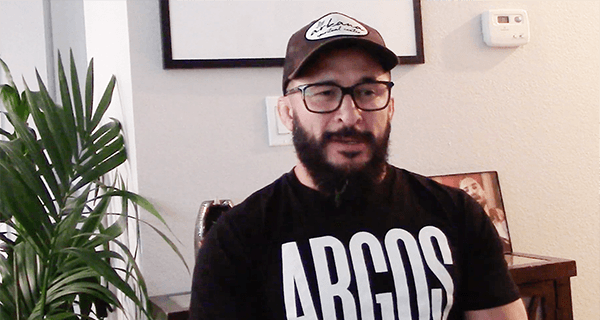 Brain Injuries and Psychedelics
Ian McCall is a former professional MMA fighter who suffered from symptoms of traumatic brain injuries. After retirement, McCall experienced confusion, anger issues, depression, and suicidal ideation. Feeling hopeless, he…
Brain Injuries and Psychedelics
Ian McCall is a former professional MMA fighter who suffered from symptoms of traumatic brain injuries. After retirement, McCall experienced confusion, anger issues, depression, and suicidal ideation. Feeling hopeless, he…
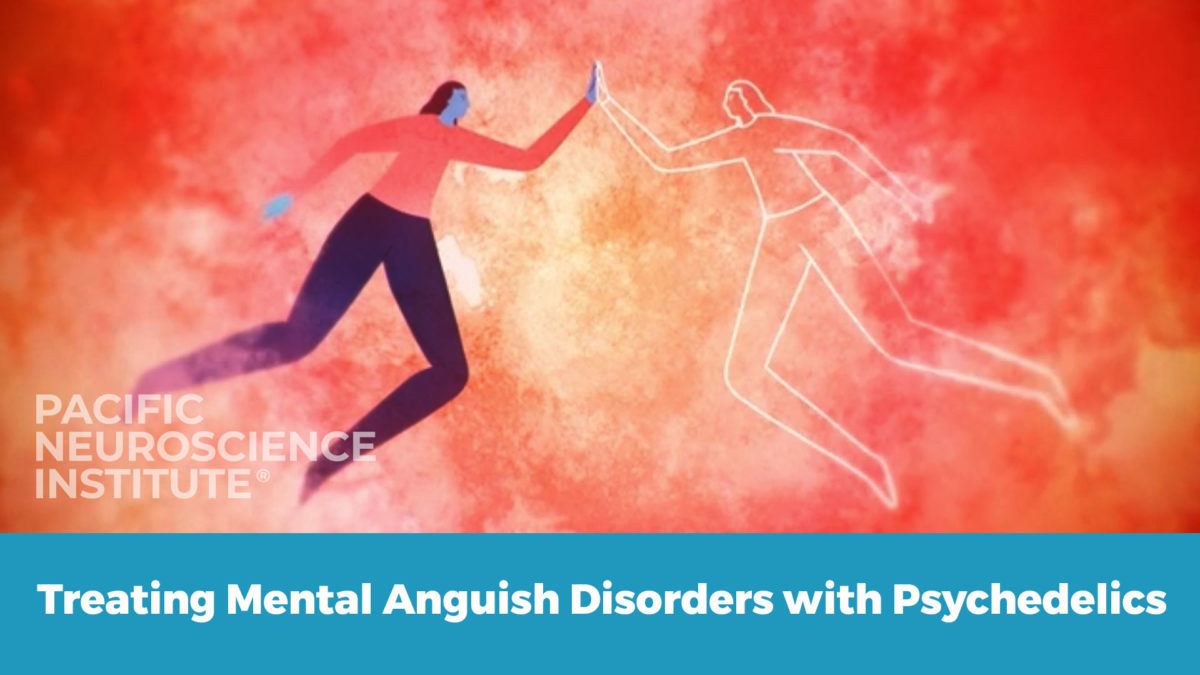 Treatment & Research In Psychedelics (TRIP) at Pacific Neuroscience Institute | Explainer
At PNI’s Treatment & Research In Psychedelics (TRIP) Program, we conduct clinical trails at the forefront of innovative and transformative medicine. TRIP, spearheaded by Daniel Kelly, MD and Keith Heinzerling,…
Treatment & Research In Psychedelics (TRIP) at Pacific Neuroscience Institute | Explainer
At PNI’s Treatment & Research In Psychedelics (TRIP) Program, we conduct clinical trails at the forefront of innovative and transformative medicine. TRIP, spearheaded by Daniel Kelly, MD and Keith Heinzerling,…
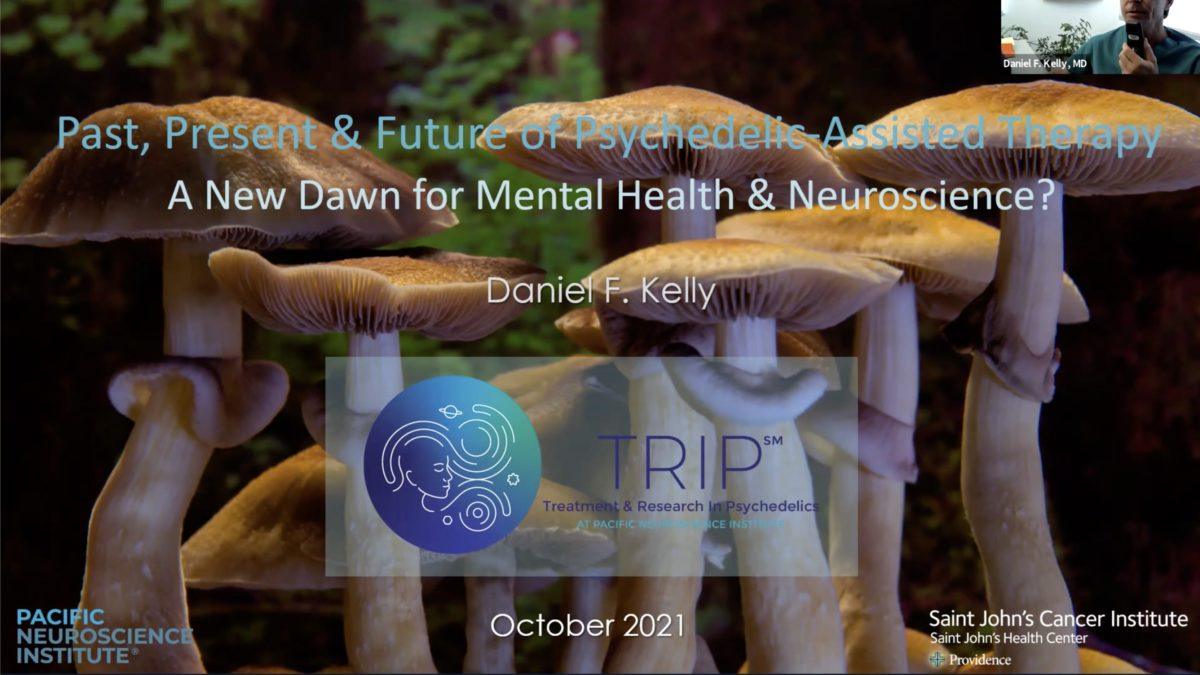 10. October, 2021: Past, Present, and Future of Psychedelic-Assisted Therapies
10. October, 2021: Past, Present, and Future of Psychedelic-Assisted Therapies
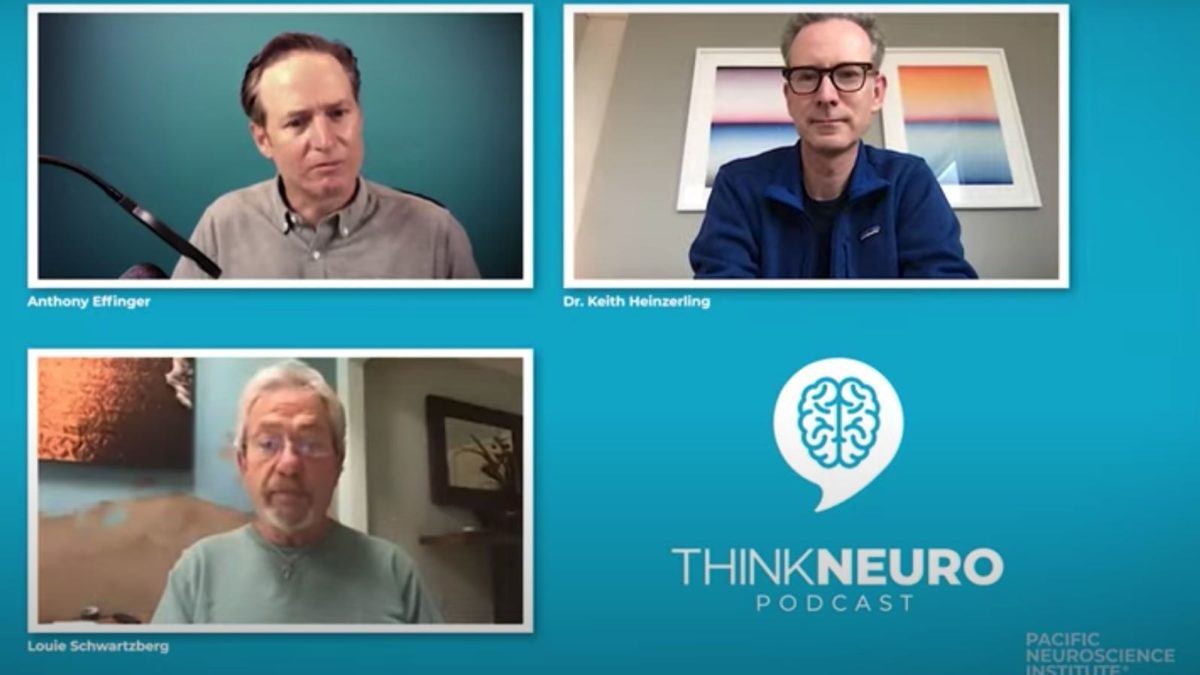 Think Neuro Podcast: The Promise of Psychedelics | Dr. Keith Heinzerling & Louie Schwartzberg
Addiction and depression are two of the most widespread conditions in all of medicine. After decades of research, doctors are still looking for alternatives for when medication and cognitive training…
Think Neuro Podcast: The Promise of Psychedelics | Dr. Keith Heinzerling & Louie Schwartzberg
Addiction and depression are two of the most widespread conditions in all of medicine. After decades of research, doctors are still looking for alternatives for when medication and cognitive training…
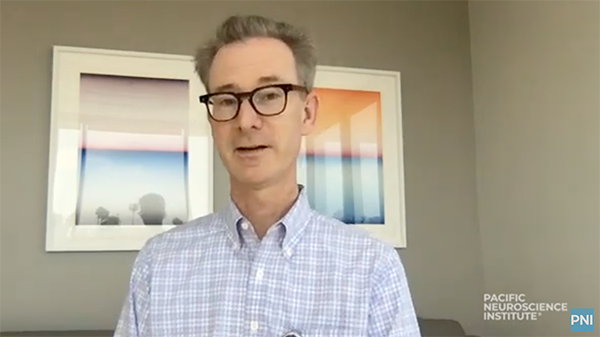 Psychedelic-Assisted Therapy with Ketamine at PNI
Using ketamine in a psychedelic-assisted approach, we treat people 16 years and older who are treatment-resistant or who wish to effectively tackle deep-rooted, unresolved trauma that has not been adequately…
Psychedelic-Assisted Therapy with Ketamine at PNI
Using ketamine in a psychedelic-assisted approach, we treat people 16 years and older who are treatment-resistant or who wish to effectively tackle deep-rooted, unresolved trauma that has not been adequately…
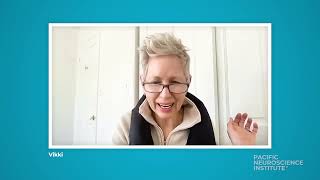 39. A Life-Changing Clinical Trial with Psychedelics | Vikki’s Grateful Patient Story
Vikki was walking her dog and listening to NPR in Santa Monica one day, when she heard an advertisement for an unusual medical trial. Pacific Neuroscience Institute was studying whether…
39. A Life-Changing Clinical Trial with Psychedelics | Vikki’s Grateful Patient Story
Vikki was walking her dog and listening to NPR in Santa Monica one day, when she heard an advertisement for an unusual medical trial. Pacific Neuroscience Institute was studying whether…

Brain Injuries and Psychedelics
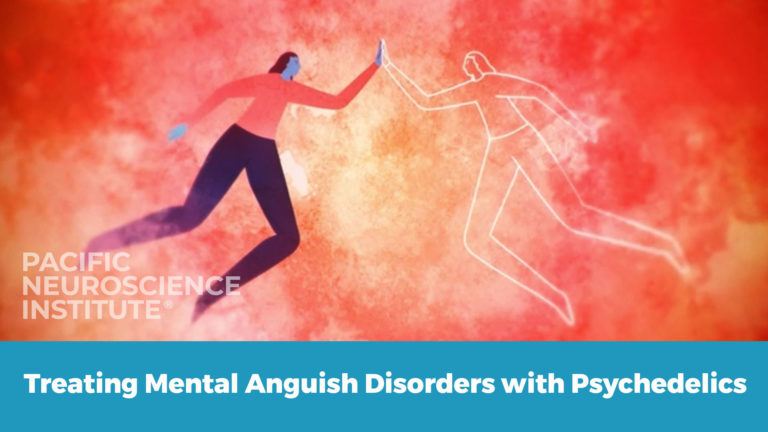
Treatment & Research In Psychedelics (TRIP) at Pacific Neuroscience Institute | Explainer
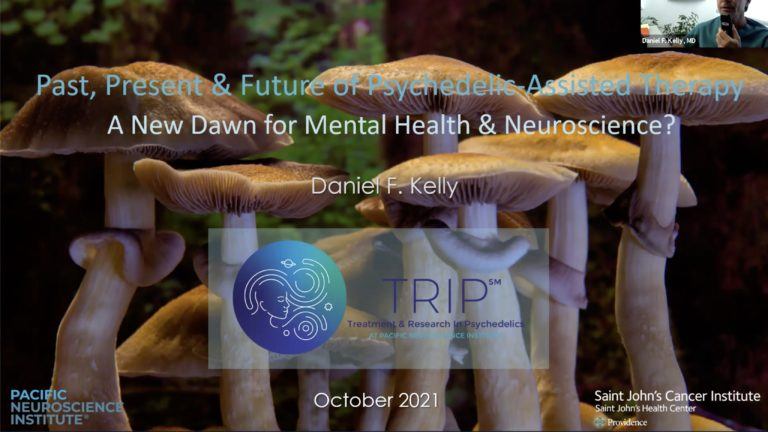
10. October, 2021: Past, Present, and Future of Psychedelic-Assisted Therapies
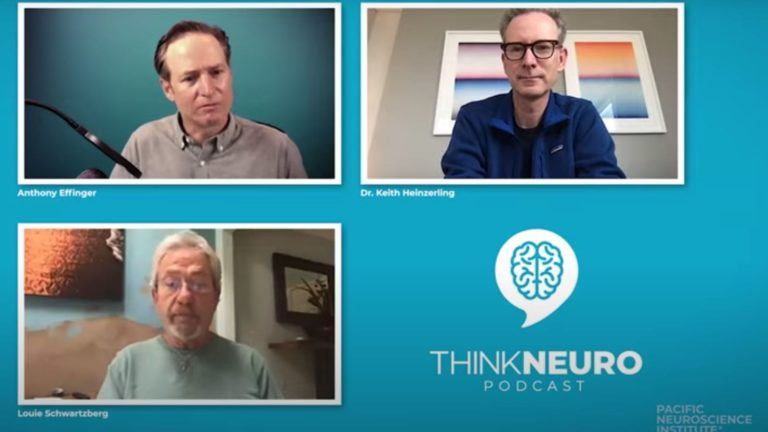
The Promise of Psychedelics | Dr. Keith Heinzerling & Louie Schwartzberg

Psychedelic-Assisted Therapy with Ketamine at PNI

39. A Life-Changing Clinical Trial with Psychedelics | Vikki’s Grateful Patient Story
About the Author
Brianna Rauchman
Brianna Rauchman, BA, is the Communications Coordinator for the Lifestyle Program, where she helps develop outreach strategies to connect with an expanding audience. Her responsibilities include providing launch support, developing content, assisting with collateral design, and planning social media strategies.
Last updated: July 18th, 2023

